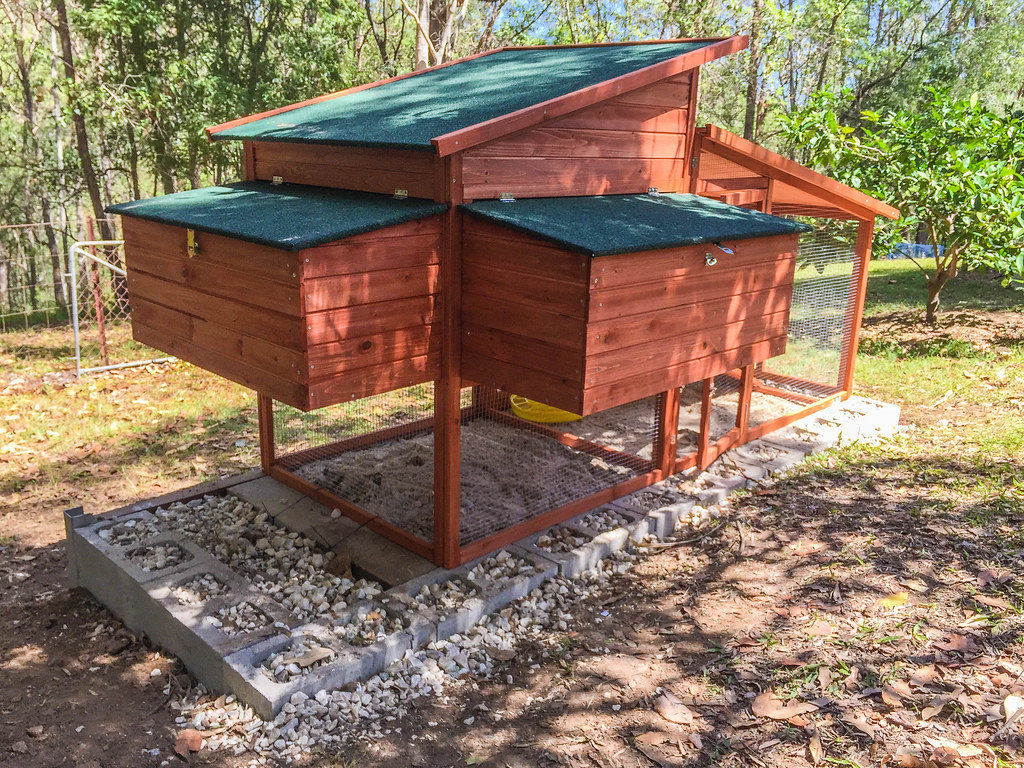
Caring for chickens is not as complicated as people think. Even newbie chicken keepers can find the job easy.
Like any other pet or animal, you must provide the basic needs of your chickens. Some tasks need to be performed on an everyday basis to ensure the health of the flock, and others that should be done either on a monthly, seasonal, or yearly basis to keep the hens and their coop in peak condition.
Chicken Care Requirements
Caring for a flock of chickens may not be a difficult task, but it doesn’t mean one doesn’t require discipline to do it. Also, a person has to love what they’re doing to be a consistent and effective chicken keeper.
1. Feed and Fresh Water
These are two of the most important things you need to make sure your chickens have access to daily. In addition to ensuring fowls have constant access to water, you should also make sure they’re drinking clean water.
Chickens can often be selective about their food, preferring to ignore water if it’s dirty. When this happens, your chickens can get dehydrated and ill, both of which could very easily lead to death.
2. Daily Checks-Ups
Being a chicken keeper is a bit like being a doctor. You should check on your flock every day to ensure that none of them are sick; that they’re all healthy and active.
It’s vital to stay on top of such matters since chickens are prone to getting ill easily. If some of your chickens are not as bright and energetic as they usually are, then you must get them looked at by a veterinarian.
3. Gather Eggs
Gathering eggs from nesting boxes is also a task you should do daily. As soon as you’re done carefully collecting the eggs, make sure to apply the proper storing practices, which involve proper refrigeration and positioning with the pointy side of the egg down, as this helps maximize freshness.
Upon collecting the eggs, you may notice that some will have dirt or dried feces on them. Make it a point not to scrub these areas since you could be removing a delicate protective film that keeps harmful bacteria from entering. To clean chicken eggs properly, gently rub them under warm water.
4. Let Your Chickens Out
In case you want to let out your chickens during the day, make sure they’re all inside the coop before the sun sets. You want to make sure all of your chickens have returned before closing and securing the door to your coop. This protective measure ensures that predators don’t get their fangs or claws on any of your fowls.
Chicken Coop Cleaning and Maintenance
How often should you clean your chicken coops? Normally, you should make an effort to remove droppings or feces from your chicken house every month. If we’re talking about thorough cleaning, though, you can do that every six months.
Here’s what else you need to keep in mind:
1. Change Beddings in Nesting Boxes
For sanitary purposes, you must replace the beddings in nesting boxes every month. Failure to do this can cause a rapid build-up of ammonia that’s potentially lethal to your flock. If you notice that many of your fowls are developing respiratory issues, look into the filthy beddings as the probable cause.
2. Removing Droppings
Chicken droppings don’t normally build up enough in 24 hours to cause a health scare. However, this would also depend on the size of your flock. You might need to clean weekly or even daily if you’re taking care of a large group of chickens.
If you’re handling small chicken coops, then once a month should be enough for the regular dropping collection committee to visit. You can make this part of coop cleaning a lot easier by placing trays or pans under the roosting poles.
3. Thorough Clean-Up and Repairs
Every six months is when some serious chicken shed cleaning should take place. You’ll need to remove and clean all nesting materials, containers, and beddings. Wash these items with a solution, which is part dish soap, part bleach, and ten parts water, to really get rid of all those germs and bacteria. Rinse all these items thoroughly before replacing or filling with fresh beddings.
Also, check areas and structures that need to be repaired or replaced. Failing to stay on top of such concerns can potentially hurt you and your flock. These tasks are normally easy enough to do on your own, but if you can’t find the time, hire a handyman to do them.
Final Thoughts
A critical part of chicken care is coop maintenance, which comprises tasks that take place daily, monthly, and annually. Any dedicated chicken keeper should be on top of everything since fowls are health-sensitive animals that can easily fall ill and die.
Simple tasks such as replacing water with a fresh batch daily already go a long way to keeping the shed clean and your chickens healthy. And then you have monthly clean-ups that involve getting rid of dirty beddings and emptying dropping-filled trays, and an even more thorough process that includes heavy cleaning and repairs done bi-annually.
Do this with consistency, and you should be able to maintain the health and happiness of your flock with minimal problems.